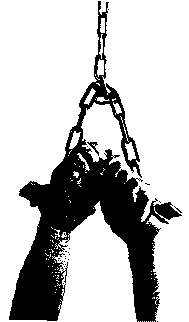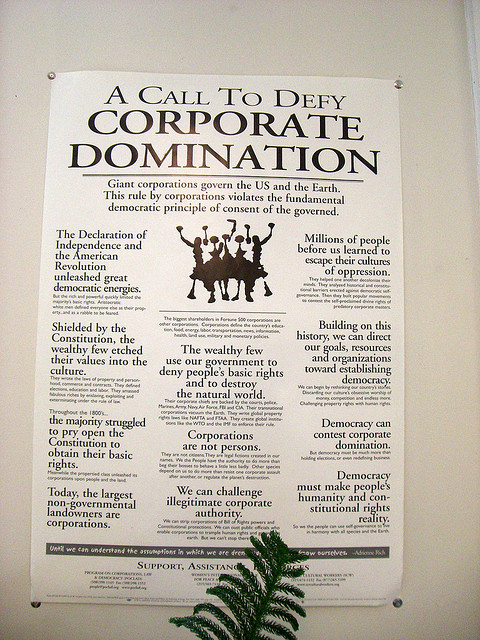Archive for the ‘Insight’ Category
Bullying 2.0

I just read a silly screed deploring Matt Taibbi (a great investigative journalist IMHO) for rude/crude behavior many years ago in Russia….
Let it be known, I find rude and crude generally acceptable as long as the door isn’t locked and no one is required to listen in order to keep their job. If we women want to be seen as equal, we have to be able to function in the whole wide world and attempts to edit it to conform to recent Puritanical views are (to me) just a new form of Bullying.
Some years ago I started seeing the Bully as the new American role model. Now I’m seeing it further advance in an onslaught against egalitarianism, free speech and diversity. The very folks we might expect to promote diversity often now complain about ‘micro-aggression’ and demand ‘safe space’ where no contrary opinion is allowed. Those fighting to protect women from assault and intimidation have been joined by a pay-back crowd who seek celebrity based on cheap shots with little justification. American culture at the moment has the character of a mob, bent on witch-burning and bringing down the house.
There are many ‘reasons’ for feelings of rage, impotence and disappointment- but there is only one real point to make here:
The United States Of Cruelty

By , June 24, 2014 Esquire
……We cheer for cruelty and say that we are asking for personal responsibility among those people who are not us, because the people who are not us do not deserve the same benefits of the political commonwealth that we have. In our politics, we have become masters of camouflage. We practice fiscal cruelty and call it an economy. We practice legal cruelty and call it justice. We practice environmental cruelty and call it opportunity. We practice vicarious cruelty and call it entertainment. We practice rhetorical cruelty and call it debate. We set the best instincts of ourselves in conflict with each other until they tear each other to ribbons, and until they are no longer our best instincts but something dark and bitter and corroborate with itself. And then it fights all the institutions that our best instincts once supported, all the elements of the political commonwealth that we once thought permanent, all the arguments that we once thought settled — until there is a terrible kind of moral self-destruction that touches those institutions and leaves them soft and fragile and, eventually, evanescent. We do all these things, cruelty running through them like hot blood, and we call it our politics…..
read full article here
AUSTRALIANS FOR COAL. What is your investment dollar doing? (a comedy)
AUSTRALIANS FOR COAL. What is your investment dollar doing?
Writer: yannisnikolakopoulos@gmail.com
Not affiliated in any way with the links below, but it might be of interest:
http://act.350.org/signup/banksdivest…
http://www.pushyourparents.org
http://www.climatebonds.net/2014/04/w…
Actors: Anne Wilson, Peter McAllum, Will Young
-
Category Comedy
-
License Creative Commons Attribution license (reuse allowed)
Slavoj Zizek Joins Occupy Wall Street
Amy Lee Huffington Post 10/10/11
Occupy Wall Street got some Slovenian philosopher star power on Sunday, as Marxist academic Slavoj Zizek joined the movement.
“We are not destroying anything,” he said. “We are only witnessing how the system is destroying itself.”
Using the “Human Microphone” system, where protestors repeat back the words of the speaker so that others can hear, Zizek spoke for over an hour to the enthusiastic crowd, who whooped and cheered as he went on.
While in China, entertainment programming that depicts alternate reality and time travel has been banned, in the U.S., we have a different problem, according to Zizek.
“Here we don’t think of prohibition, because the ruling system has even oppressed our capacity to dream, ” he said. “Look at the movies that we see all the time — It’s easy to imagine the end of the world, an asteroid destroying a whole life, but you cannot imagine the end of capitalism. So what are we doing here?”
Zizek also advised the people to see the Tea Party as a sister movement — “They may be stupid, but don’t look at them as the enemy,” he said.
But he warned the protestors against succumbing to the excitement of the immediate events instead of keeping their eye on the prize: True social change.
Zizek is just the latest of the prominent figures who have come to lend their voice in Zuccotti Park, alongside activists like Michael Moore, writer Naomi Klein as well as actors including Mark Ruffalo, Susan Sarandon, and Roseanne Barr.
Also: Slavoj Zizek: The Delusion of Green Capitalism
The government doesn’t give a wan, eitolated damn about you- Fred Reed
The government doesn’t give a wan, eitolated damn about you. 
Eye-balling the Fifth Century
July 21, 2011 By Fred Reed FredOnEverything.net
When a country works reasonably well—when the schools teach algebra and not governmentally mandated Appropriate Values, when the police are scarce and courteous, when government is remote and minds its business and works more for the benefit of the country than for looters and special interests, then pledging to it a degree of allegiance isn’t foolish. Decades back America was such a country, imperfect as all countries are, but good enough to cherish.
As decline begins, and government becomes oppressive, self-righteous, and ruthless yet incompetent, as official spying flourishes, as corruption sets in hard, and institutions rot, it is time to disengage. Loyalty to a country is a choice, not an obligation. In other times people have loved family, friends, common decency, tribe, regiment, or church instead of country. In an age of national collapse, this is wise.
A fruitful field of disengagement might be called domestic expatriation—the recognition that living in a country makes you a resident, not a subscriber. It is one thing to be loyal to a government that is loyal to you, another thing entirely to continue that loyalty when the Brown Shirts march and the government rejects everything that you believe in. While the phrase has become unbearably pretentious, it is possible to regard oneself as a citizen of the world rather than of the Reich.
Truth Decay: reality vs. perception management
First, define it. (Tough one, huh?) In an era of plausible deniability, drone over-kill and high-tech surveillance it is perfectly reasonable to suspect both events and motives. I expected this article might be another to put tin foil hats on the usual suspects but it has a little different approach, and it’s worth reading.
What was ‘reality’ when people were encouraged to “Remember the Maine!”? We still don’t know for sure. But with the sophisticated and highly paid perception management industry busy twisting facts into talking points, we need to keep our critical thinking caps on 24/7. It’s too easy to obscure a nasty black-op with a “conspiracy theory” label.
-cwr
***
By Greg Guma May 25, 2011 AlterNet 
Truth Decay: Conspiracy Theories and Hoaxes Are Blurring Reality
How about some accountability for the false prophets, gross opportunists, and irresponsible rumor-mongers who threaten society with truth decay?
After his End Times prediction failed last week millionaire radio prophet Harold Camping eventually came up with an excuse. During his show “Open Forum” in Oakland on May 23, he explained that the world will still end in October. It’s a process and we’re just getting started. That’s a relief. At first I thought millions of people had just wasted days of time and energy fussing over some hairbrained idea.
There are so many theories out there. Obama is a secret Muslim – millions of people believe that, secular humanists want to repress religion, and liberals are plotting to confiscate people’s guns and push a “gay agenda.” At the opposite end of the political spectrum, there’s the assertion that 9/11 was an inside job and all that this entails. No offense meant. I’ve been called a “conspiracy nut” myself, specifically for saying that we should know more about the attack on the Twin Towers. Still, a modern-day Reichstag fire at multiple locations does qualify as a radical conclusion.
I usually resist the urge to challenge the controversial theories of fellow travelers, at least in mixed company. The other night, for example, during a discussion about Al-Qaeda after Osama, a speaker casually asserted that President Roosevelt knew about the attack on Pearl Harbor in advance and let it happen. No one said a word. I considered questioning the notion but let it pass.
Anything’s possible, right? Why be rude? But some theories and predictions are too important. They are widely accepted as indisputable and part of an overall world view, usually linked with an anti-establishment ideology. They have practical consequences for social action, can spark deep divisions, and influence how people see and treat others. In some groups, if you question the conclusions of a prevailing theory you’re either a dupe or a collaborator.
Deep skepticism is often at the root, a good thing in general. After all, so much of what we once believed has turned out to be a lie, or at least a very selective version of reality. But still, shouldn’t there be standards? Also, why do some theories get all the attention while others, perhaps more credible ones, get buried? And can’t we at least call people to account when their claims repeatedly lead down false trails?





